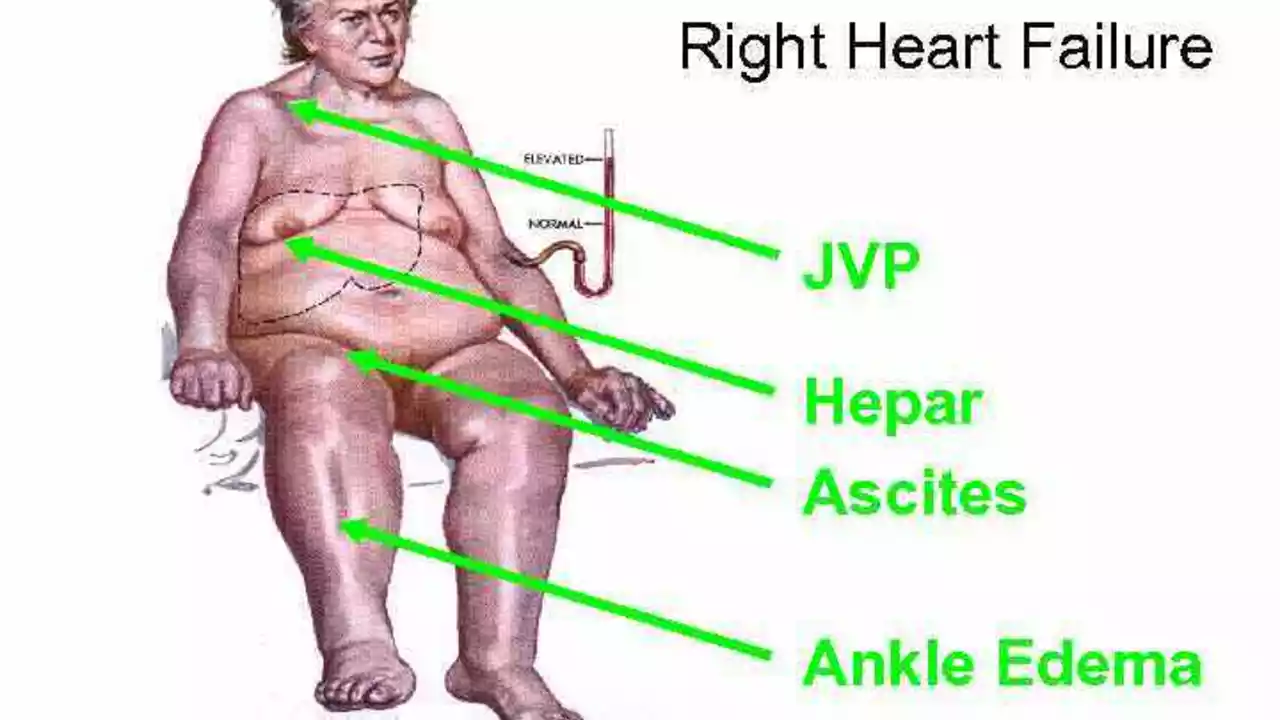Understanding Congestive Heart Failure
We all know that the heart is like an efficient, tireless pump – a pièce de résistance in the intricate machinery that is the human body. Now imagine this pump stalling, getting less efficient with every passing moment. Quite an image, right? This is what happens during congestive heart failure. It can be an overwhelming and disconcerting diagnosis, but recognizing the early signs can indeed provide a valuable head-start in managing it effectively.
A Peek Inside the Biology of Congestive Heart Failure
Congestive Heart Failure, or CHF, is a chronic condition in which the heart cannot pump blood as effectively as needed. Over time, fluid builds up around the heart, causing congestion (hence the name). This scenario does not paint the happiest of pictures. However, comprehending the science of it all can be tremendously beneficial in understanding the early symptoms. Interestingly, the heart doesn't stop functioning abruptly. Rather, its efficiency reduces over time, leading to an increased strain on our cardiovascular system. This, in turn, initiates a cascade of pathophysiological changes that manifest as the signs and symptoms of CHF.
Unraveling The Early Signs of Congestive Heart Failure
Like a mystery novel, your body sends out clues when things are going awry. These subtle signs might be easily dismissed as 'having a tough day', 'getting older', or 'noticing a small change'. Yes, figuring out the nuances of your own body can be complex. But fear not! Here are some early signs that can give you a heads up about CHF: Shortness of breath, especially when you're lying down; persistent cough or wheezing; swelling or fluid retention; tiredness or fatigue; increased heart rate; loss of appetite.
Playing Detective to These Early Signs
Myriad everyday activities like climbing a flight of stairs or coming out of a warm bath can become challenging when you have heart failure. One day, Kirsten, my better half, expressed concern when she found me panting after a small bout of stair-climbing. This was unusual because I've always been active. Upon further noticing a persistent cough and swollen ankles, we didn't chalk it up to age or physical strain and decided to get it checked out. Thus began my date with CHF.
Physician’s Evaluation and Diagnostic Measures
When you present these early signs to your doctor, they'd likely initiate specific diagnostic tests to verify the presence and severity of CHF. Electrocardiogram (ECG), Echocardiogram, Magnetic Resonance Imaging (MRI), blood tests, and exercise stress tests are some common investigations. In my case, a series of blood tests and an ECG revealed an irregular heartbeat, leading to further evaluation and confirmation of CHF.
The Magic of Heart-healthy Lifestyle Modifications
Now that you have been armed with the necessary knowledge about CHF, let's plunge into the many changes that can create a positive impact on life with CHF. Regular monitoring of weight, adopting a heart-healthy diet, limiting salt and fluid intake, abstaining from smoking and alcohol, being physically active, managing stress, and taking medications religiously help keep CHF at bay. Kirsten and I, for instance, instantly swapped salt for spices and embraced a DASH diet. We incorporated regular walks, yoga, and meditation into our daily routine, keeping our stress levels in check.
Navigating the Maze of Medical Management
Management of CHF is, more often than not, quite comprehensive. Medications, devices, and surgical procedures will be tailored to your unique clinical profile and needs. ACE inhibitors, beta-blockers, diuretics, and anticoagulants, etc. might be a part of your therapeutic lineage. Pro tip: Understand your therapeutic regime and adhere to it religiously; your heart will thank you!
Boosting Awareness, Building Resilience
Remember folks, knowledge is power - the more you know about CHF, the better equipped you are at managing it. Understanding the early signs, being vigilant about them, making lifestyle modifications, and abiding by your therapeutic regime create a robust defense against CHF. While heart failure might seem like an insurmountable challenge, remember that you're not alone in this journey. With the right mix of awareness, resilience, and adaptation, you can live a full and rewarding life with CHF. After all, as someone wise once said, "The human spirit is stronger than anything that could happen to it".


Write a comment